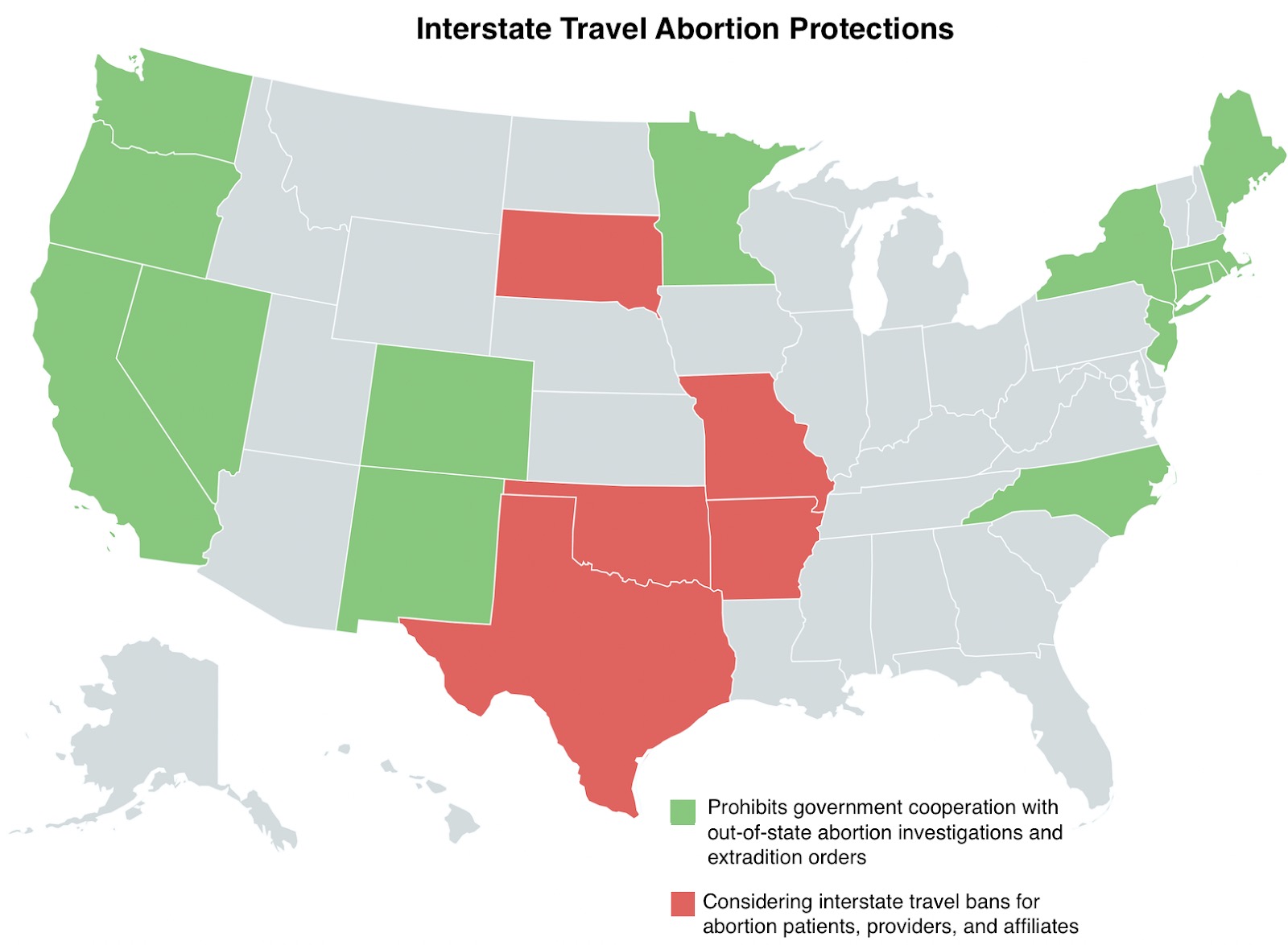Lawmakers in Arkansas, Missouri, Oklahoma, South Dakota, and Texas are considering legislation to ban residents from seeking or helping to provide out-of-state abortions.
Fourteen governors have preemptively prohibited government agencies and employees from cooperating with other states’ abortion investigation cases. This includes providing time, money, information, or other resources to states banning people from receiving or helping someone get an abortion across state lines. Governor Jay Inslee (D-WA) goes the extra mile, requiring the Washington State Patrol to regularly update the governor on investigation requests they receive from other states. The states that have instituted travel protections are California, Colorado, Connecticut, Maine, Massachusetts, Minnesota, Nevada, North Carolina, New Jersey, New Mexico, New York, Oregon, Rhode Island, and Washington.

President Joe Biden anticipates states will arrest pregnant people attempting to cross state lines to get an abortion. Some clinics operating in states without explicit interstate protections have limited the services available to out-of-state patients. Planned Parenthoods in Montana, for example, will only provide abortion pills for state residents.
“May a State bar a resident of that State from traveling to another State to obtain an abortion?” Justice Kavanaugh asked in his Dobbs concurrence. “In my view, the answer is no based on the constitutional right to interstate travel.” The majority opinion did not mention anything about interstate travel or provide any baseline provisions for abortion access.
“Interstate restrictions will also soon be in the offing,” the dissenting Justices—Sotomayor, Kagan, and Breyer—wrote in their opinion. “Some [states] may criminalize efforts, including the provision of information or funding, to help women gain access to other States’ abortion services.” Beyond the immediate impact of these restrictions on pregnant people, the three Justices are wary of what this means for concurrent rights. “The Constitution protects travel and speech and interstate commerce, so [the Dobbs] ruling will give rise to a host of new constitutional questions.”